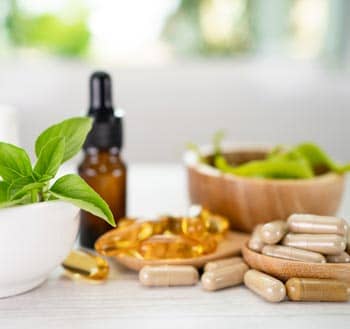Home Detox! What Does it Take?
Over the years, we have received thousands of calls, and many of these are from parents, spouses and pretty much anyone seeking to help another who is struggling to overcome their addiction.
Drugs and alcohol are quite common in our present society, and there are many reasons for this, but this is not the purpose of this article. This article intends to assist someone who cannot get help from other resources. Please understand that the information below is advice and cannot be interpreted as a professional or medical diagnosis.
The owners of this website cannot be held responsible for any misgivings or personal well-being from using this information. The following information is used at one’s own risk and benefit and should not be done with someone who has a severe addiction.

Do You Want to Stop but Don’t Know How?
You can’t afford a private drug rehab? The addiction treatment is too far away? Or you cannot wait for a bed to become available yet still wish to stop using illicit drugs or alcohol? This article may be of help to you.
Of course, as we know, drugs and alcohol are poisons. Obviously, the body does not naturally produce cocaine, heroin or crack, beer, wine and scotch on the rocks. But when someone consumes some, the body’s first reaction is to fight the foreign substance from damaging its internal structure. Just as the body fights back a common cold, it does so with drugs and alcohol. It fights back and uses up the stored vitamins, minerals and other substances that bring energy and health.
More reading: The Body and Depletions
Steps You Can Take
The degree of use determines the amount of fightback the body gives. The greater the fightback, the more “depletion” of the body’s reserve and immune system. This explains why a person with substance use disorder can look very unhealthy. The body’s nutrients are now depleted, and the person is prone to illness, disease, and various infections.
Of course, there are different stages of addiction, and appearance and physical health vary. Find out more on the stages of addiction here.
If you wish to help someone out someone with an addiction, the following actions can help. Any caring and determined person can do the following.
- As feasible, get the person away from the area of use.
- Begin a nutritional intake period, which is
- Immediate intake of vitamins and minerals to rebuild the lost nutrients in the body’s natural structure. Get the best and highest dosage of multivitamins at a health food store. You can double the dosage for the first three days at least. For example, if it says two per day, you take four or one every 6 hours; it can even be two every 8 hours. The body will simply release what it doesn’t use.
- Include a Multi-mineral at least once a day. Extra calcium and magnesium are vital for muscle, nerve, and bone strength. You can buy this as a powder to make a drink called CAL-MAG. Check with your health food supplier. One product is Calmax, which can be purchased in different flavours and works well.
(Please do not give vitamins or minerals on an empty stomach. The person should take these with yogurt; if a stomach ache appears, have them drink milk.)


- Epson salt baths can help ease the effects of withdrawal. It helps calm and relax and generally brings some relief to the person. Just have them take a bath with the salt in it per the package instructions.
- Avoid drawn-out conversations that require the person to think or wonder about their situation—this action comes much later in the process.
- Take many short walks (when possible) and have them look at objects far and close. This action alone will bring the person’s attention outward toward the world around them and not in “their head.” Indoors, you can do it also by telling the person to “look at _____ (table, lamp, window, etc.) over and over until they show signs of feeling a bit better and do acknowledge the person. If the person can walk, switch it up with “touch that ____ (object) it gives the same result – attention off self and outward.
- All the actions above are done many times a day, day after day—at least for the first 4 to 5 days. Of course, this depends on the drug being withdrawn.
Opiate and barbiturate users or alcohol drinkers should consult a physician, as the sudden stopping of these substances can have severe medical consequences.
Working with the Person
The key point is to keep working with the person. The first day or so will be hard, but the person will improve with each hour of each day. You will also observe the person getting happier and getting better healthwise.
Remember, you are basically stopping the person from adding more poison to their system and rebuilding the body’s natural defence system.

Observation and Signs of Success
The person has most likely come to you in bad physical condition and an emotional mess. As you work with the person, you will most likely see the apathetic person begin to self-pity or feel victimized.
Continue to help them, and you will see the person have a moment of grief. It will change to fear, hostility, hate and anger.
At one point, they might express antagonism, then show boredom and disinterest. But you must continue. Eventually, they will be calm, interested and in a pleased state of mind. It occurs over many days and will fluctuate up and down, but persist and don’t give up on them.
Is This the End?
When the person is feeling more alive and somewhat healthier, it means they have sort of patched up their body and gotten rid of the effects of withdrawal. This is by no means the end, and that all will be great from here on out, NO! You and the recovering individual need to now seek support and help to continue their recovery.
Because the person is not now doing drugs or alcohol does not guarantee they won’t relapse. Most relapses occur because of half-done actions or incomplete ones. Stopping to improve their lives will be their downfall.
We hope this article was helpful. If any of you used it and were successful, please feel free to leave a comment. We are here to assist with questions and tips.
Further reading: Being Relapse-Free

Marc J. Bernard
Author,
Substance Use Disorder & Recovery Professional,
Referral & Consultation Counsellor


2 Responses
Please can I have more information on how to get this online treatment for alcohol abuse in Prince George BC and is there a cost
Thank you for your message, someone will be contacting you soon to answer your questions.